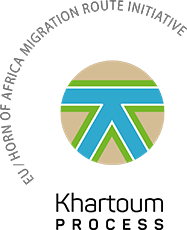Thematic Meeting on Ensuring a Whole-of-government Approach on Migration
- Date:
- Location: Stockholm, Sweden

On 14-15 November 2023, member States of the Khartoum Process gathered in Stockholm upon the initiative of Sweden and Somalia to discuss whole-of-government approaches on migration.
Responding to a variety of current migration challenges requires a wide range of government actions. Return, readmission, and reintegration are only a part of wider migration policies, which include other elements such as protection, labour migration and skills development, the migration and development nexus etc. As recalled by the Sustainable Development Goals Indicator 10.7.2 and the Global Compact on Safe, Orderly and Regular Migration para 15, migration is a multidimensional topic that cannot be addressed by one policy sector alone. In practice planned and well-managed migration policies thus require a comprehensive “whole-of-government” approach. The Joint Valletta Action Plan (JVAP) includes such an approach throughout its five domains, where partnerships, cooperation and coordination amongst institutions are underlined throughout the Action Plan.













